24 Hours Hotline: +86 137-3541-1378
Email:[email protected]
24 Hours Hotline: +86 137-3541-1378
Email:[email protected]

Overview of Giant Pandas
The giant panda known as panda bear or simply panda, is a bear native to south central China. It is easily recognized by the large, distinctive black patches around its eyes, over the ears, and across its round body. The name "giant panda" is sometimes used to distinguish it from the unrelated red panda. Though it belongs to the order Carnivora, the giant panda's diet is over 99% bamboo. Giant pandas in the wild will occasionally eat other grasses, wild tubers, or even meat in the form of birds, rodents, or carrion. In captivity, they may receive honey, eggs, fish, yams, shrub leaves, oranges, or bananas along with specially prepared food.
The giant panda lives in a few mountain ranges in central China, mainly in Sichuan, but also in neighbouring Shaanxi and Gansu. As a result of farming, deforestation, and other development, the giant panda has been driven out of the lowland areas where it once lived.

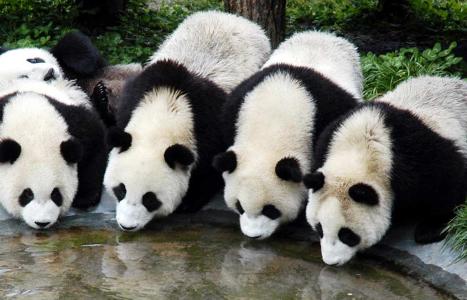
The giant panda is a conservation reliant vulnerable species. A 2007 report showed 239 pandas living in captivity inside China and another 27 outside the country. As of December 2014, 49 giant pandas lived in captivity outside China, living in 18 zoos in 13 different countries. Wild population estimates vary; one estimate shows that there are about 1,590 individuals living in the wild, while a 2006 study via DNA analysis estimated that this figure could be as high as 2,000 to 3,000. Some reports also show that the number of giant pandas in the wild is on the rise. In March 2015, Mongabay stated that the wild giant panda population had increased by 268, or 16.8%, to 1,864 individuals. In 2016, the IUCN reclassified the species from "endangered" to "vulnerable".
Size & description
Also called great pandas, parti-colored bears, bamboo bears and white bears, giant pandas are distinguished from other pandas by their large size and black-and-white coloring.
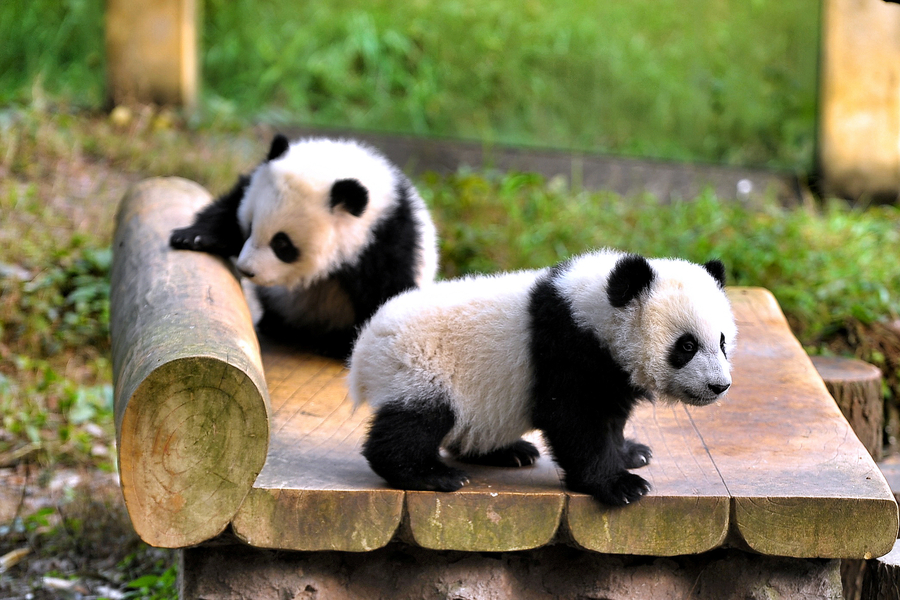
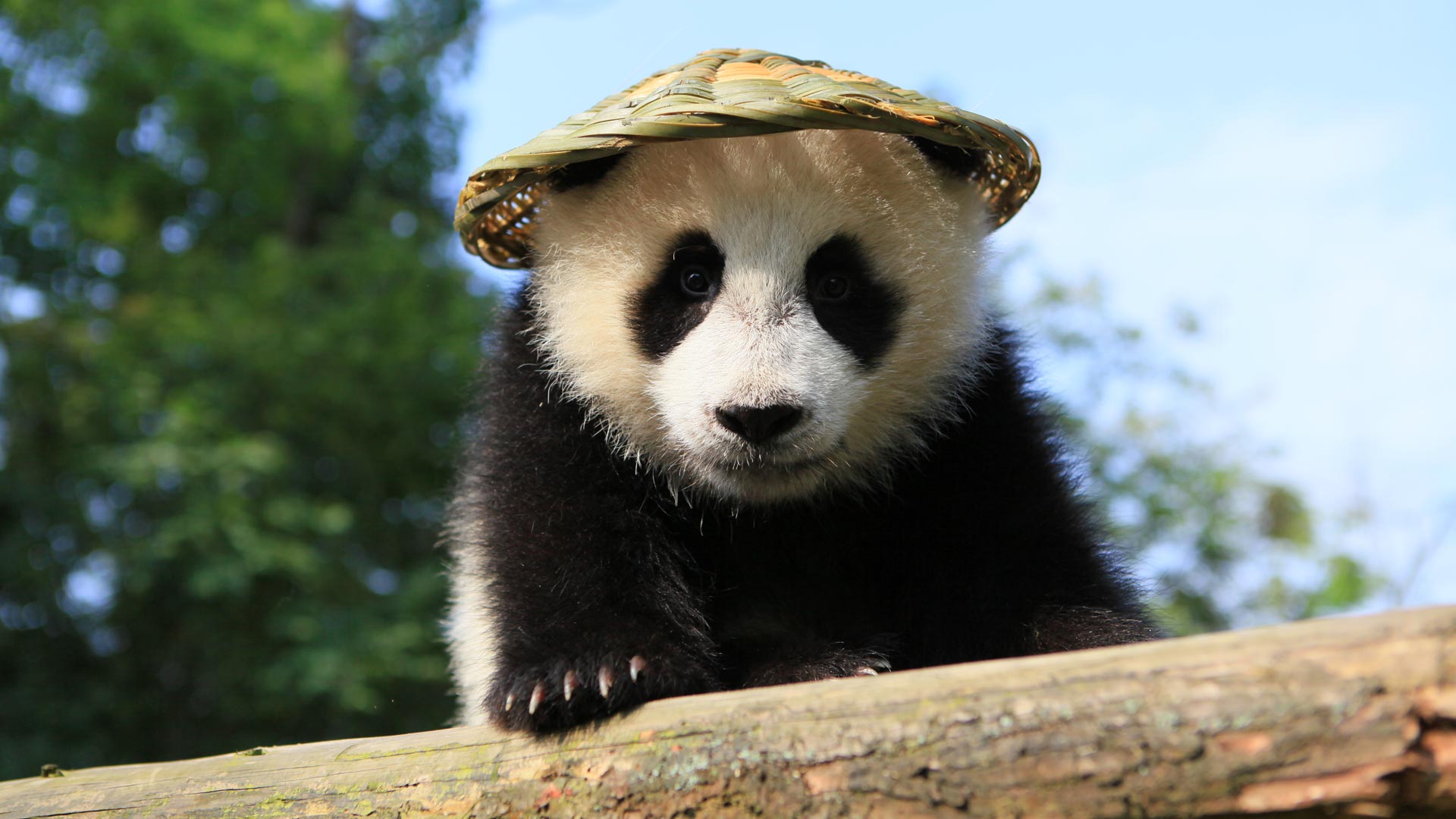
Giant pandas live up to their name. They are 4 to 5 feet (1.2 to 1.5 meters) tall and weigh up to 300 lbs. (136 kilograms), according to the National Geographic, about the same as an American black bear. By comparison, their distant relatives, red pandas, are only 20 to 26 inches (50 to 65 cm) tall and weigh 12 to 20 lbs. (5.4 to 9 kg).
Habitat
In the wild, giant pandas are only found in the remote, mountainous regions of central China, in Sichuan, Shaanxi and Gansu provinces, according to the National Zoo. In this area, there are cool, wet bamboo forests that are perfect for the giant panda's needs. Giant pandas make their dens from hollowed-out logs or stumps of conifer trees found within the forest.
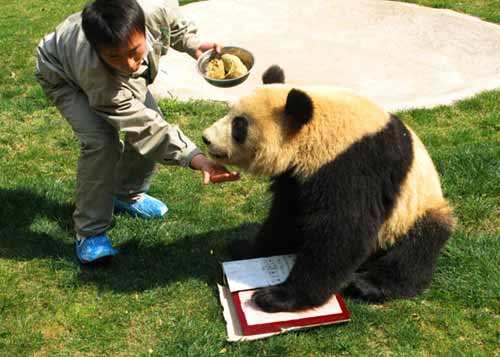
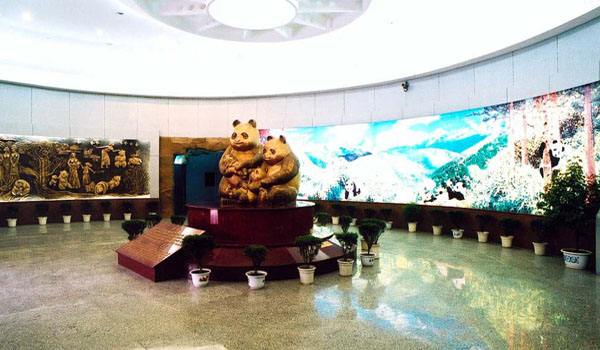
Geographic Distribution
Giant pandas live in a few mountain ranges in central China’s Sichuan, Shaanxi, and Gansu provinces. They once lived in lowland areas, but farming, forest clearing, and other development now restrict giant pandas to the mountains.
Diet
A wild giant panda’s diet is almost exclusively (99 percent) bamboo. The balance consists of other grasses and occasional small rodents or musk deer fawns. In zoos, giant pandas eat bamboo, sugar cane, rice gruel, a special high-fiber biscuit, carrots, apples, and sweet potatoes.

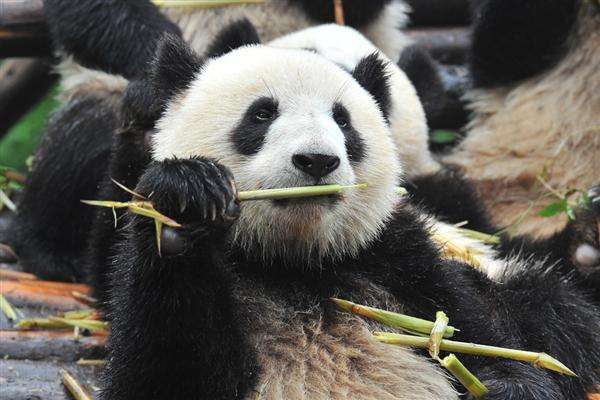
Social Structure
Adult giant pandas are generally solitary, but they do communicate periodically through scent marks, calls, and occasional meetings. Offspring stay with their mothers from one and a half to three years.
Wechat: Chinaprivatetour
24 Hours Hotline:
+86 137-3541-1378
* Authentic Experiences: Genuine local experiences that immerse you in the true essence of Suzhou and beyond.
* Safety First: Highest safety standards with secure activities and reliable transportation.
* Customizable Tours: Flexible itineraries tailored to your interests and needs.
* Local Expertise: In-depth knowledge of Suzhou and China, offering exclusive insights.
* Professional Guides: Licensed bilingual guides with over 5 years of experience.
* Comfortable Travel: Experienced drivers and well-maintained vehicles for a smooth journey.
* Sustainable Tourism:Commitment to responsible tourism and supporting local communities.
* Customer-Focused: Personalized service and continuous improvement based on your feedback.
* Free Cancellation: Cancel up to 24 hours before travel for flexibility and peace of mind.
* 24/7 Support: Round-the-clock assistance for any questions or help needed.
1 to 1 tailor-made service from our professional travel advisors for the most sophisticated
Constantly excellent reviews for attraction, hotel and service Competitive price
Local experts provide quality tours Best selected knowledgeable local guides Authentic local restaurants
7*24 hours available to create you a worry-free tour. No Hidden Fees and absolutely no pressure to buy. Secured









Copyright © 2017 Suzhouprivatetour.com All rights reserved. 浙ICP备18056007号-4